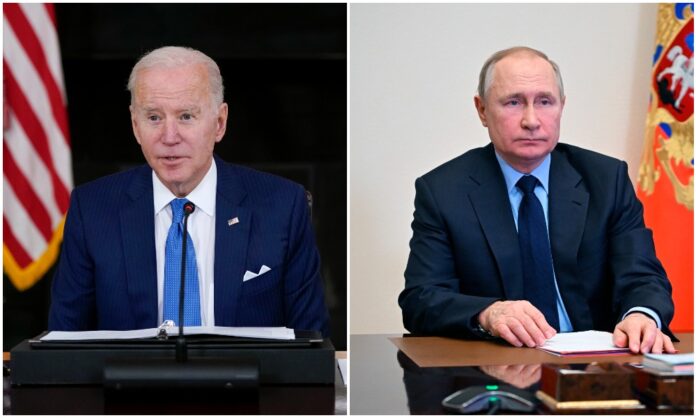WASHINGTON D.C.: Amid mounting warnings that a Russian invasion of Ukraine could come any day, the Pentagon said Sunday that the latest top-level US-Russian contacts did not provide “any cause for optimism.”
Pentagon spokesman John Kirby offered a grim assessment of the one-hour phone conversation Saturday between US President Joe Biden and Russian counterpart Vladimir Putin.
“It’s certainly not a sign that things are moving in the right direction. It’s certainly not a sign that Mr. Putin has any intention to de-escalate. And it’s certainly not a sign that he is recommitting himself to a diplomatic path forward,” Kirby told “Fox News Sunday” when asked about the lack of fundamental change after the call.
“So, it does not give us any cause for optimism.”
US officials in recent days have issued a series of increasingly blunt warnings that a Russian invasion of Ukraine could be imminent, and foreign countries have been rushing to evacuate their nationals.
US national security adviser Jake Sullivan told CNN on Sunday that “a major military action could begin by Russia in Ukraine any day now.”
Sullivan used some of the most specific — and chilling — language yet employed by an American official, warning that an invasion is “likely to begin with a significant barrage of missiles and bomb attacks… so innocent civilians could be killed.”
That, he said, would be followed by a ground invasion in which “innocent civilians could get caught in the crossfire.”
Sullivan said Russia might yet opt for a diplomatic solution, but its forces near Ukraine’s borders are “in a position where they could launch a military action very, very rapidly.”
The growing drumbeat of warnings has infused diplomatic contacts with a sense of intense urgency.
Biden was set to speak to President Volodymyr Zelensky “in coming hours,” the Ukrainian leader’s office said Sunday.
And German Chancellor Olaf Scholz, who was preparing to leave for talks in Kyiv and Moscow, vowed “tough” and immediate sanctions by Germany and its NATO and European allies should a Russian attack threaten Ukraine’s “territorial integrity and sovereignty.”
Tensions are now at a “very critical, very dangerous” point, a German government source told reporters.
In London, Defense Secretary Ben Wallace expressed concern that diplomacy was having any effect.
“The worrying thing is that despite the massive amount of increased diplomacy, that military build-up has continued,” he told the Sunday Times. “It has not paused, it has continued.”
Sign in
Welcome! Log into your account
Forgot your password? Get help
Password recovery
Recover your password
A password will be e-mailed to you.

